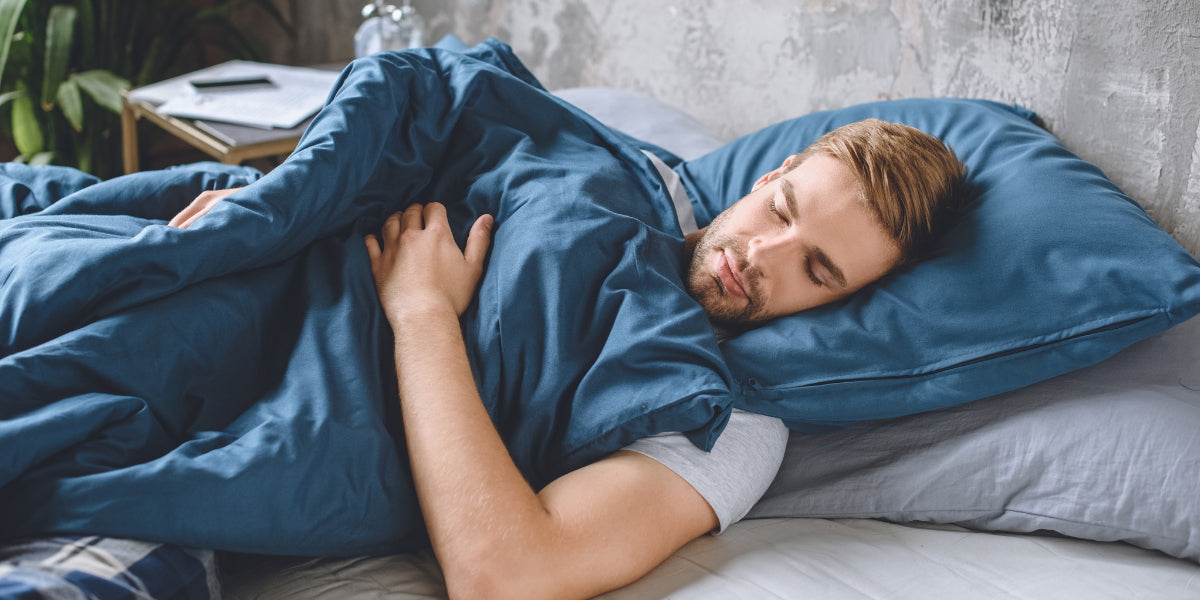You’ve probably heard the saying, "sleep is for the weak," but did you know that getting a good night's sleep is actually crucial to your mental health? In today's fast-paced world, it can be difficult to prioritize sleep over work and social commitments.
The consequences of sleep deprivation extend from physical health to mental health. The more reason why sleep should not be put on the back burner. In fact, sleep is just as important as eating healthy and exercising.
So, what is the connection between sleep and mental health? How does it affect our daily life? Let's explore.
What is the Science Behind Sleep
Before we can fully understand how the quality of sleep affects our mental health, it's important to understand the science behind it. Sleep is a complex biological process that allows our bodies to rest, restore, and repair. During slumber, our brains go through different stages of sleep, including REM sleep and non-REM sleep, according to Harvard University.
REM sleep stands for rapid eye movement sleep. In this stage, our brains become very active, and our eyes move rapidly back and forth, hence the name. In fact, our brains are so active that our bodies often become temporarily paralyzed to prevent us from acting out our dreams.
REM sleep has a positive impact on learning and memory consolidation. During REM sleep, our brains are processing the information we've taken in during the day and form new connections between neurons, which helps us remember things better. This also helps our brains process and regulate emotions.
Furthermore, REM sleep is important for physical restoration. During this stage of sleep, your body is repairing and regenerating tissues, and your immune system is strengthened.
On the other hand, non-rapid eye movement (NREM) sleep is a more restful stage of REM. NREM sleep is the stage of sleep that occurs when we first fall asleep. During NREM sleep, our brains are less active than they are when we're awake or in other stages of sleep. Our bodies are also in a state of relaxation, with our heart rate, breathing, and blood pressure all slowing down.
During these stages, our bodies release hormones, such as melatonin, that help regulate the circadian rhythm or our sleep-wake cycle, which leads to improved sleep.
What is the Relationship Between Sleep and Mental Health?
Sleep and mental health are interconnected in numerous ways. Sleep is essential for the brain to function optimally and for maintaining good mental health. When we sleep, our bodies and brains are not idle; they perform a range of essential activities, such as memory consolidation, emotional regulation, and cellular repair, that help keep us healthy and alert, according to Sleep Foundation.
Study shows that it is during sleep that the brain can remove toxins that accumulate during the day. This process is known as the glymphatic system, which is like a cleaning system that washes away toxins, proteins, and waste materials that accumulate in the brain.
Adequate sleep also helps regulate our emotions. When we don't get enough sleep, we may experience mood swings, irritability, and depression. These negative emotions can, in turn, interfere with our sleep, leading to a vicious cycle, according to the Mental Health Foundation.
That's why building healthy sleep hygiene is essential to improve the quality of your sleep and promote better mental health.
Sleep hygiene refers to the habits and practices that we adopt to promote improvements in sleep quality. Here are a few tips and relaxation techniques to follow:
- Stick to a consistent sleep schedule, even on weekends
- Create a relaxing bedtime routine
- Make sure your sleep environment is comfortable and conducive to sleep
- Avoid sources of bright lights (phones, TVs, tablets) before bedtime
- Limit caffeine and alcohol intake
Now, you may be wondering, "How much sleep do I need?" The Centers for Disease Control and Prevention recommends that adults should aim for 7 to 9 hours of sleep each night. However, the optimal amount of sleep varies from person to person, and some may need more or less. It's essential to listen to your body and establish a sleep habit that works for you.
Want to improve your sleep further? Using an eye massager might be just what you need. Check out our article Why You Need an Eye Massager in 2023 to learn more.
What are the Negative Effects of Sleep Deprivation

Sleep deprivation or poor-quality sleep can have a number of negative effects on our mental health, including increased stress and anxiety, depression, and mood swings. You might feel irritable, short-tempered, or emotional. It also might become harder to cope with stress or to interact with others in a positive way. In addition, lack of sleep can impair our ability to think clearly and make decisions.
But the effects of poor sleep quality go beyond just feeling tired or moody. Insufficient sleep can weaken your immune system, making you more susceptible to illnesses like the common cold or the flu. It can also increase your risk of developing chronic conditions like cardiovascular disease, diabetes, and obesity, states the American Psychological Association.
Additionally, inadequate sleep has a negative impact on your physical appearance. It can lead to dark circles under your eyes, dry or pale skin, and even weight gain. This is because sleep deprivation affects hormones like ghrelin that control hunger and metabolism.
What are the Benefits of Sleep for Mental Health

On the flip side, getting a good night's sleep can have several beneficial effects on our mental health. Here are five benefits of sleep for mental health:
Boosts Mood: Have you ever noticed that you feel grumpy and irritable after a poor night's sleep? This is because sleep plays a crucial role in emotional regulation. Studies have shown that getting enough sleep can improve our emotional well-being and decrease the risk of developing mood disorders.
Improves Memory and Cognitive Function: Sleep is essential for consolidating memories and improving cognitive function, according to the Sleep Foundation. When we sleep, our brains process and organize the information we've learned throughout the day, making it easier for us to recall information later.
Reduces Stress and Anxiety: Sleep has been shown to reduce levels of cortisol, a hormone associated with stress. In addition, getting enough sleep can help reduce symptoms of anxiety and improve our ability to cope with stressful situations.
Increases Creativity: Have you ever had a creative breakthrough after a good night's sleep? This is because sleep has been shown to enhance our ability to think creatively and solve problems.
Boosts Immune System: Sleep plays a crucial role in supporting our immune system. When we sleep, our bodies produce cytokines, proteins that help fight infection and inflammation.
Conclusion
Sleep is just as important as eating healthy and exercising when it comes to our overall health and quality of life. Not only does sleep help our bodies rest and repair, but it also plays a crucial role in our mental health. So, the next time you hear someone mention that sleep is only for the weak, remind them of the power of sleep and its connection to mental health.
Renpho Health Tips
-

Ways to Relax After An Exhausting Day
April 29, 2022
Read more >
-

Tips for Sleep Issues and Having a Better Sleeping Space
June 16, 2022
Read more >
-

Mini Habits - Importance Of Rest & Recovery
November 29, 2022
Read more >
-

Tips for a Good Night's Sleep This Spring: Understanding Your Body Clock
March 14, 2023
Read more >
-

10-Minute Yoga Routine For Stress and Anxiety Relief
April 23, 2023
Read more >




































